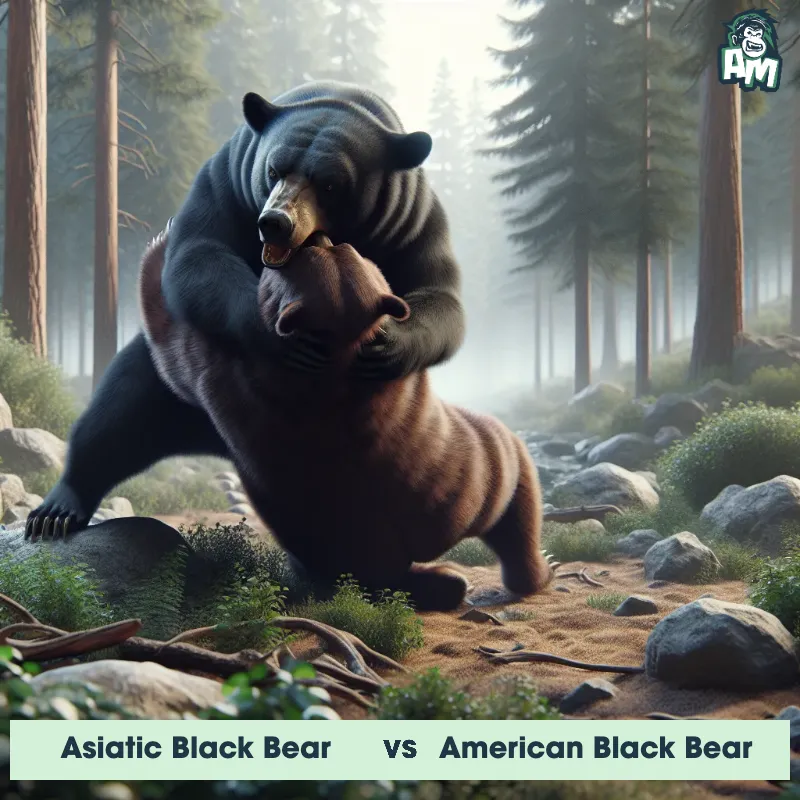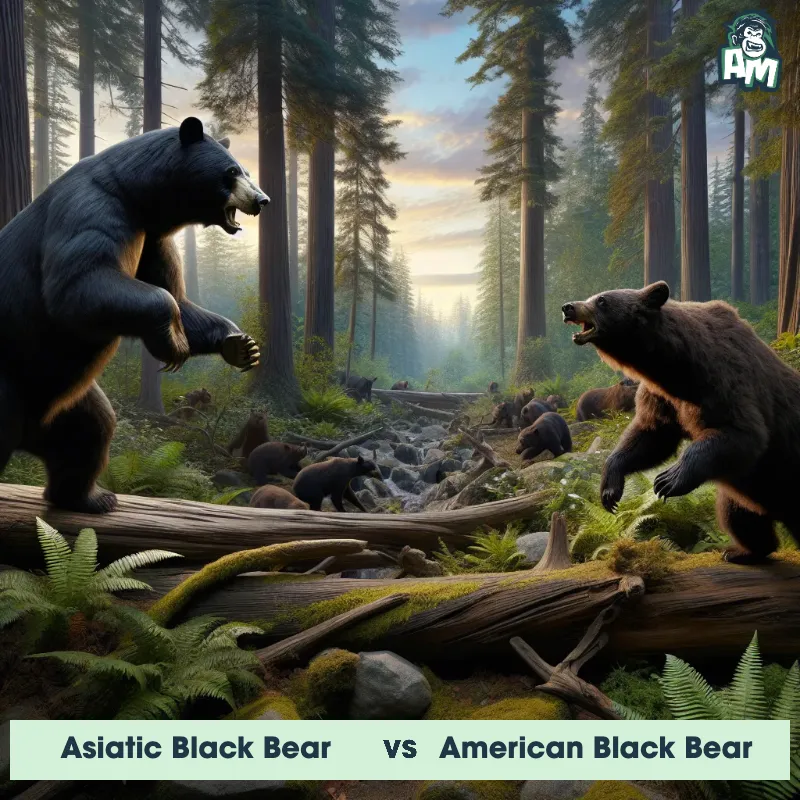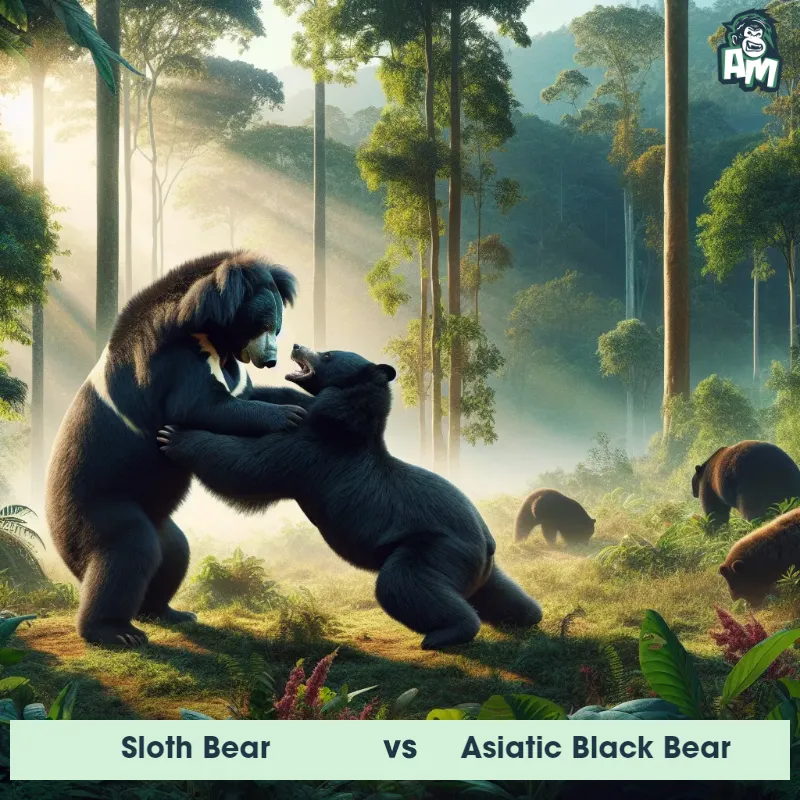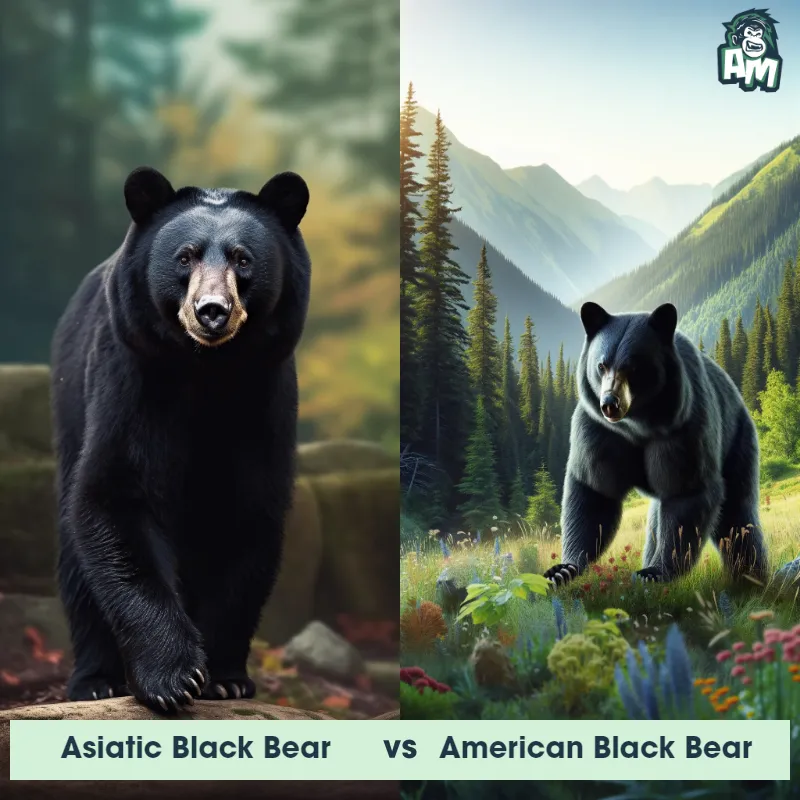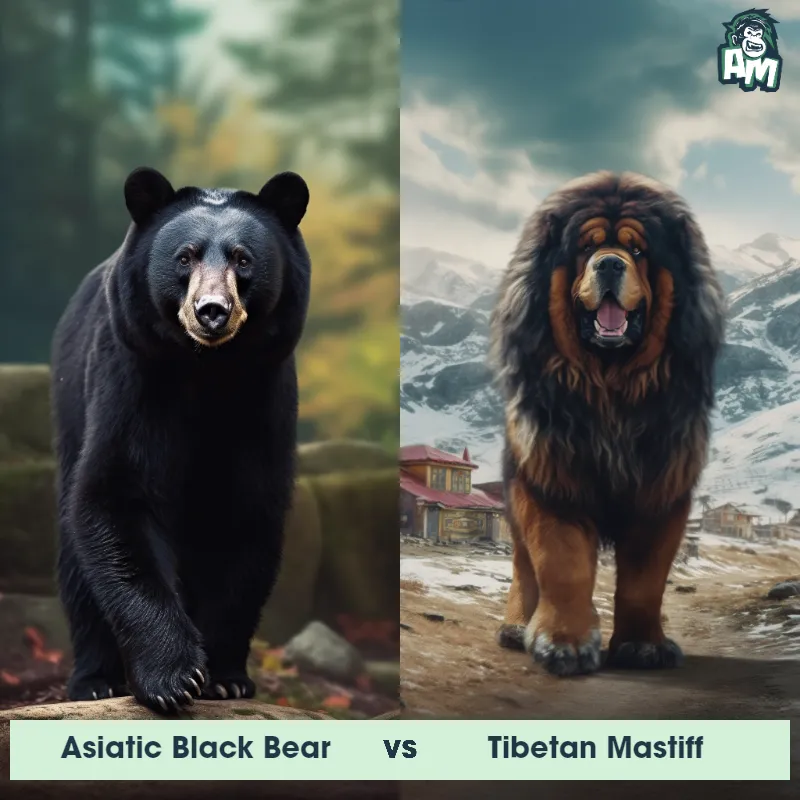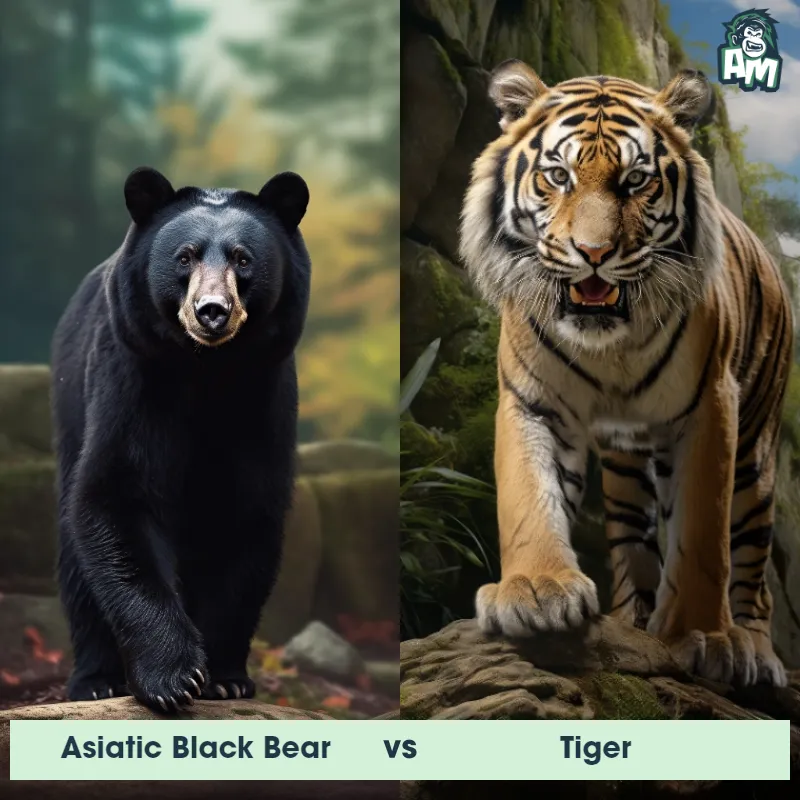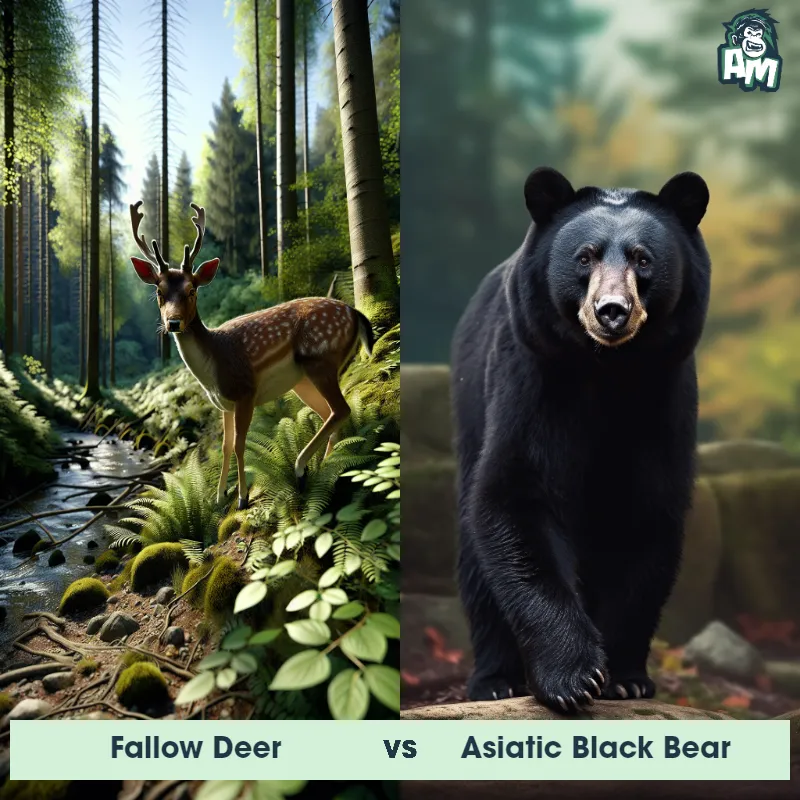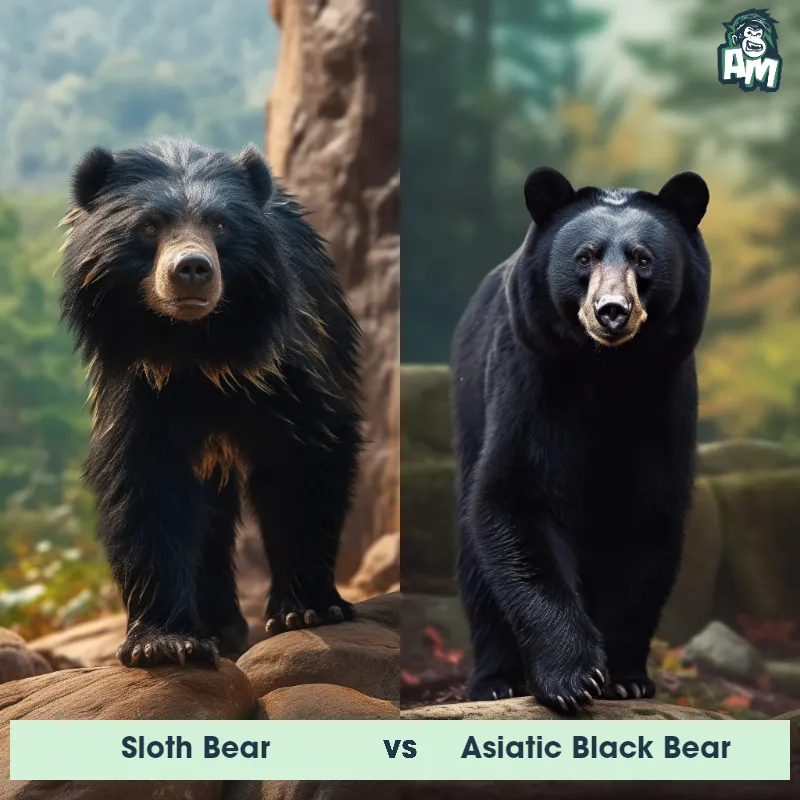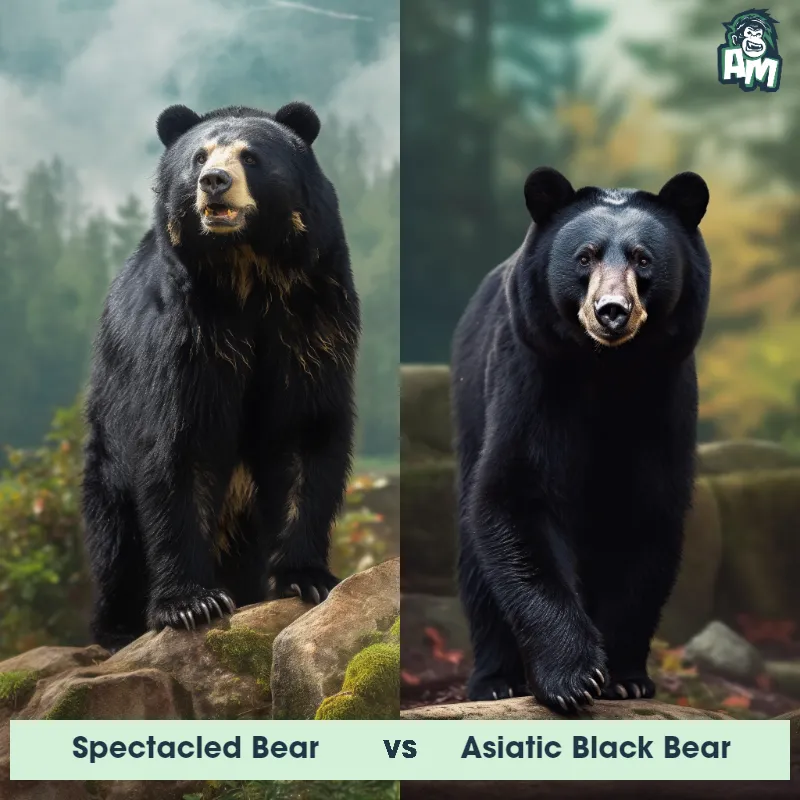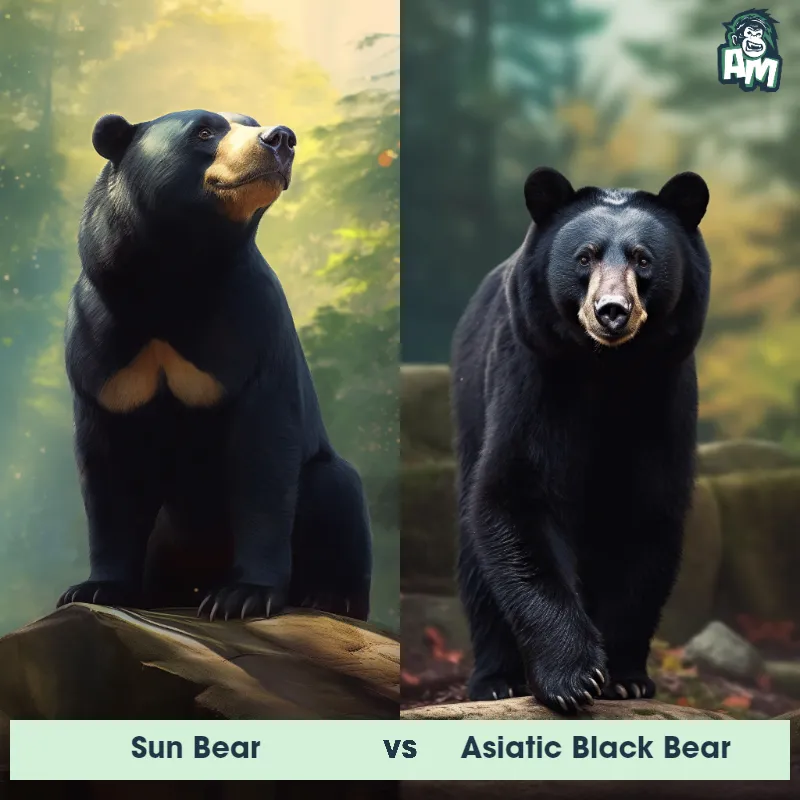The Asiatic Black Bear
The Asiatic Black Bear, also known as the Moon Bear, is a medium-sized bear species native to Asia. It has a stocky build and can reach a height of up to 6 feet and a weight of 440 pounds. The bear's most distinctive feature is its black fur, although some individuals may have a light-colored V or crescent-shaped marking on their chest. They have strong jaws and long claws, which they use for climbing trees and digging for food. Asiatic Black Bears have a keen sense of smell and excellent hearing, making them skilled hunters and foragers. They are primarily herbivorous and feed on a variety of plant material, fruits, nuts, insects, and occasionally small mammals or fish. These adaptable bears can be found in a range of habitats, including forests, mountains, and bamboo thickets.
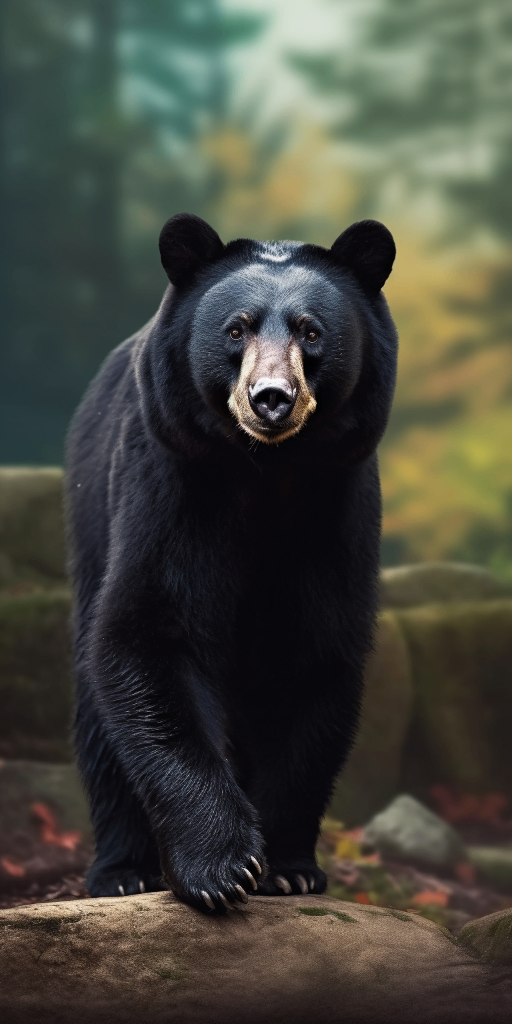
| Asiatic Black Bear | |
|---|---|
| Size | 5-6 feet (1.5-1.8 meters) |
| Weight | 220-440 pounds (100-200 kilograms) |
| Speed | Speed: 25 mph (40 km/hr) |
| Key Strength | Powerful jaws and sharp claws |
| Biggest Weakness | Slow movement |
| Scientific Name | Ursus thibetanus |
| Family | Ursidae |
| Habitat | Forests |
| Geography | Asia |
| Diet | Omnivorous |
| Lifespan | 20 years - 30 years |

The Asiatic Black Bear
The Asiatic Black Bear, also known as the Moon Bear, is a medium-sized bear species native to Asia. It has a stocky build and can reach a height of up to 6 feet and a weight of 440 pounds. The bear's most distinctive feature is its black fur, although some individuals may have a light-colored V or crescent-shaped marking on their chest. They have strong jaws and long claws, which they use for climbing trees and digging for food. Asiatic Black Bears have a keen sense of smell and excellent hearing, making them skilled hunters and foragers. They are primarily herbivorous and feed on a variety of plant material, fruits, nuts, insects, and occasionally small mammals or fish. These adaptable bears can be found in a range of habitats, including forests, mountains, and bamboo thickets.
Fun Fact: Asiatic Black Bears have a unique and amusing way of descending trees - they prefer to slide down rather than climbing down, using their backsides as a slide to make their descent.
| Asiatic Black Bear | |
|---|---|
| Size | 5-6 feet (1.5-1.8 meters) |
| Weight | 220-440 pounds (100-200 kilograms) |
| Speed | Speed: 25 mph (40 km/hr) |
| Key Strength | Powerful jaws and sharp claws |
| Biggest Weakness | Slow movement |
| Scientific Name | Ursus thibetanus |
| Family | Ursidae |
| Habitat | Forests |
| Geography | Asia |
| Diet | Omnivorous |
| Lifespan | 20 years - 30 years |
Match Highlights
Asiatic Black Bear Matchups
We use AI to simulate matchups between the Asiatic Black Bear and other animals. Our simulation considers size, strength, and natural predatory behaviors to determine the most likely outcome.
Asiatic Black Bear: Diet, Predators, Aggression, and Defensive Behaviors
What do Asiatic Black Bears eat?
Asiatic Black Bears are omnivores, meaning they eat both plants and animals. Their diet typically includes fruits, nuts, insects, small mammals, fish, and occasionally carrion. They are known to raid crops and beehives, which can lead to conflicts with humans.
Do Asiatic Black Bears have any predators?
As adult bears, Asiatic Black Bears do not have many predators due to their large size and strength. However, young cubs may be vulnerable to predation by large predators such as tigers and leopards.
Are Asiatic Black Bears aggressive?
Asiatic Black Bears are typically shy and elusive creatures, but they can become aggressive if they feel threatened or cornered. Mother bears are especially protective of their cubs and may exhibit aggressive behavior if they perceive them to be in danger.
Do Asiatic Black Bears fight?
Asiatic Black Bears are solitary animals for most of the year, but conflicts can arise between individuals over territory or mates. Male bears may engage in physical fights, especially during the breeding season, to establish dominance and mating rights.
How do Asiatic Black Bears defend themselves?
When threatened, Asiatic Black Bears may use vocalizations, bluff charges, and posturing to intimidate potential threats. If these deterrents fail, they may resort to physical confrontations, using their powerful jaws and claws to defend themselves.
What is the biggest weakness of Asiatic Black Bears in a fight?
Despite their strength and size, Asiatic Black Bears are vulnerable to attacks on their neck and throat. If an opponent is able to deliver powerful bites or scratches to these areas, it can severely weaken the bear and potentially lead to defeat in a fight.
Fun Fact: This species has the ability to hibernate during the winter months, even though they are not true hibernators. During this period, their body temperature drops slightly, and they do not eat or drink, relying on their stored fat reserves.
Fun Fact: Asiatic Black Bears are known for their strong maternal instincts. The mothers are incredibly protective of their cubs and will defend them fiercely if they feel threatened. In some cases, they have exhibited acts of self-sacrifice to ensure the safety of their offspring.



